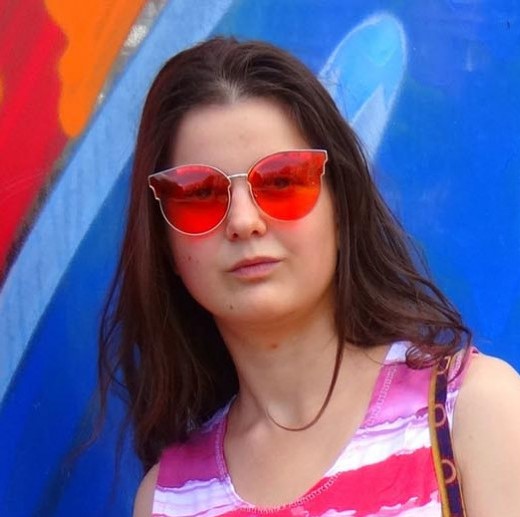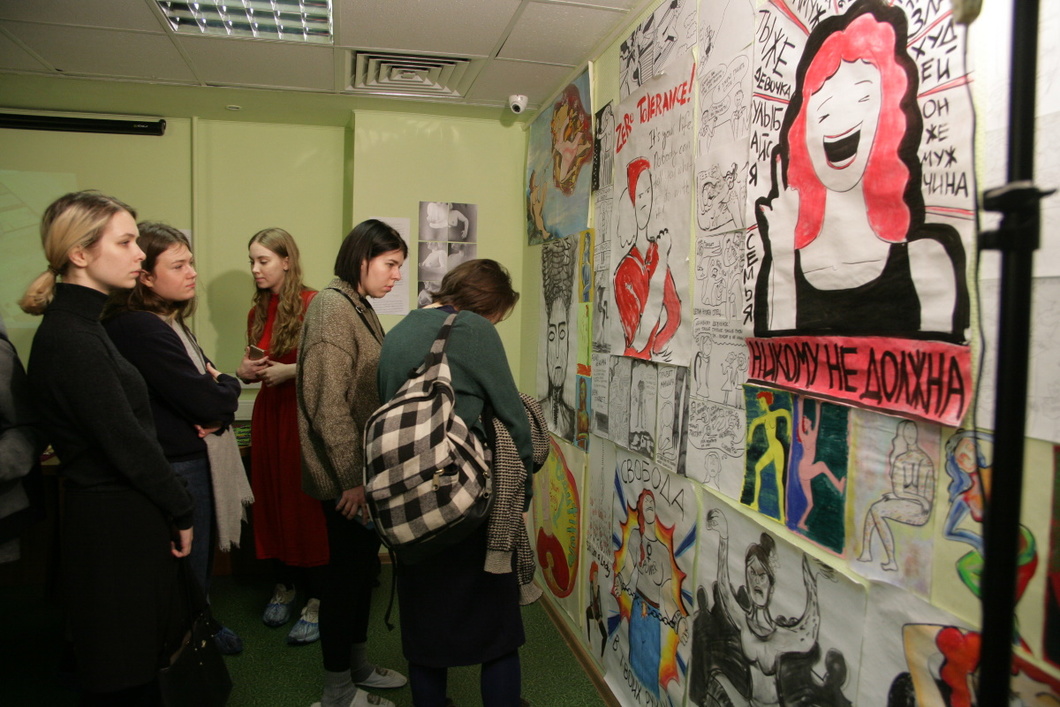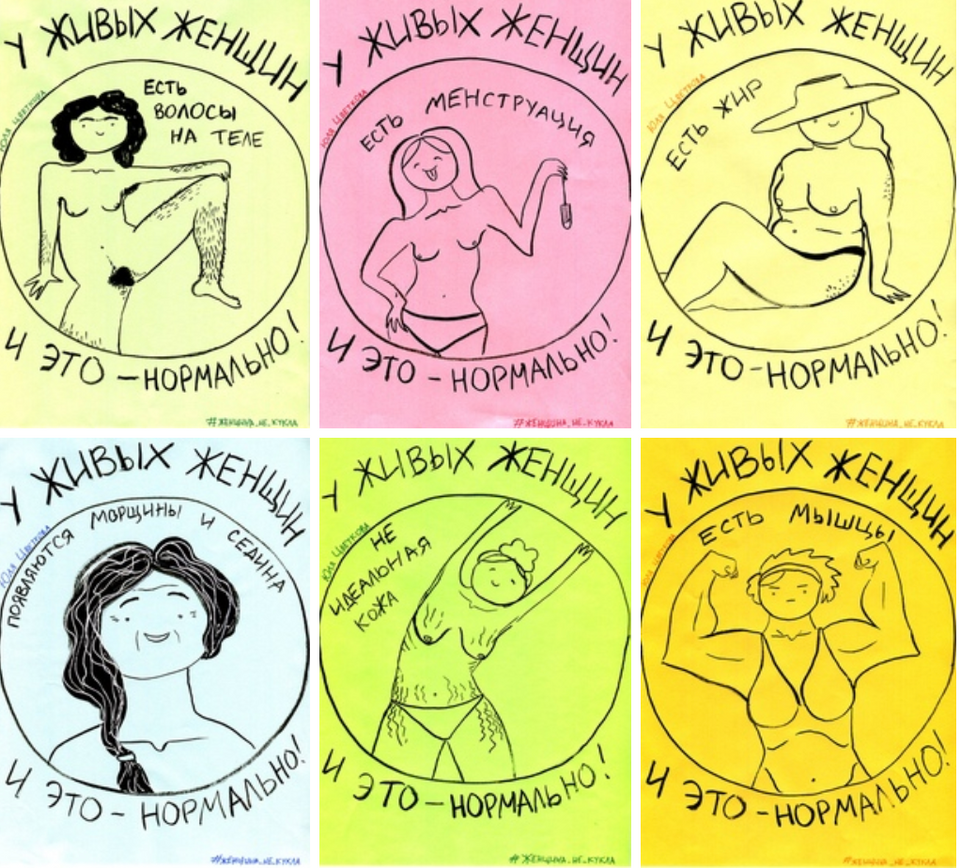Yulia Tsvetkova
Visual Artist
Russia


Visitors at Katrin Nenasheva’s exhibit in December 2019. Photo: Svetlana Vidanova / Novaya Gazeta
“For the last year, I’ve been hearing that my work means nothing. That women do not need rights, that body positivity is a pornography that corrupts children and ruins their lives. That I should go to jail and face a sentence, that I should be murdered and I should be burned at the stake because I am a witch. ” — Yulia Tsvetkova

Yulia Tsvetkova's drawings include captions such as “Real women have body fat and it’s normal” and “Real women have wrinkles and grey hair and it’s normal” © Yulia Tsvetkova/Facebook
“This sets a serious precedent for everyone involved in LGBT activism in any way, particularly if one is lucky enough, or unlucky enough, to have any connection with children: if you work with them, or work near them, or have any ties with those who work with children.” — Yulia Tsvetkova
Tsvetkova was initially fined for her online activity, and was then formally charged in January 2020 for posting a drawing online with the caption, “Family is where love is. Support LGBT+ families,” which was shared “in support of a same-sex couple who had had to flee Russia with their adopted children because the authorities had threatened to take their children away from them.” Under the Russian government’s broad umbrella definition of “non-traditional” sexual relations, much of Tsvetkova’s LGBTQ activism, including her local online sex education resources, has been criminalized as distribution of pornography among minors, despite the fact that her online educational efforts were on “18+” websites. While the government lifted Tsvetkova’s house arrest in early March 2020, she continues to face the potential of a six year sentence and it is unclear when her trial will officially begin.
Censorship breeds self-censorship, as Russian artists struggle to evade persecution for works that explore taboo subjects. Tsvetkova has already felt the self-regulatory effects of her treatment by authorities, saying, “Some germ of fear or uncertainty has appeared… while I am painting on very abstract topics.” But Tsvetkova remains convinced of the power, and necessity, of making art that challenges social norms: “My views have not changed, and I will transform everything that happens to me into artistic forms.”
By Annie Kiyonaga, June 2020. Annie is a recent graduate from University of North Carolina at Chapel Hill, where she studied art history and literature. She currently lives in New York, where she’s working for an education non-profit.





